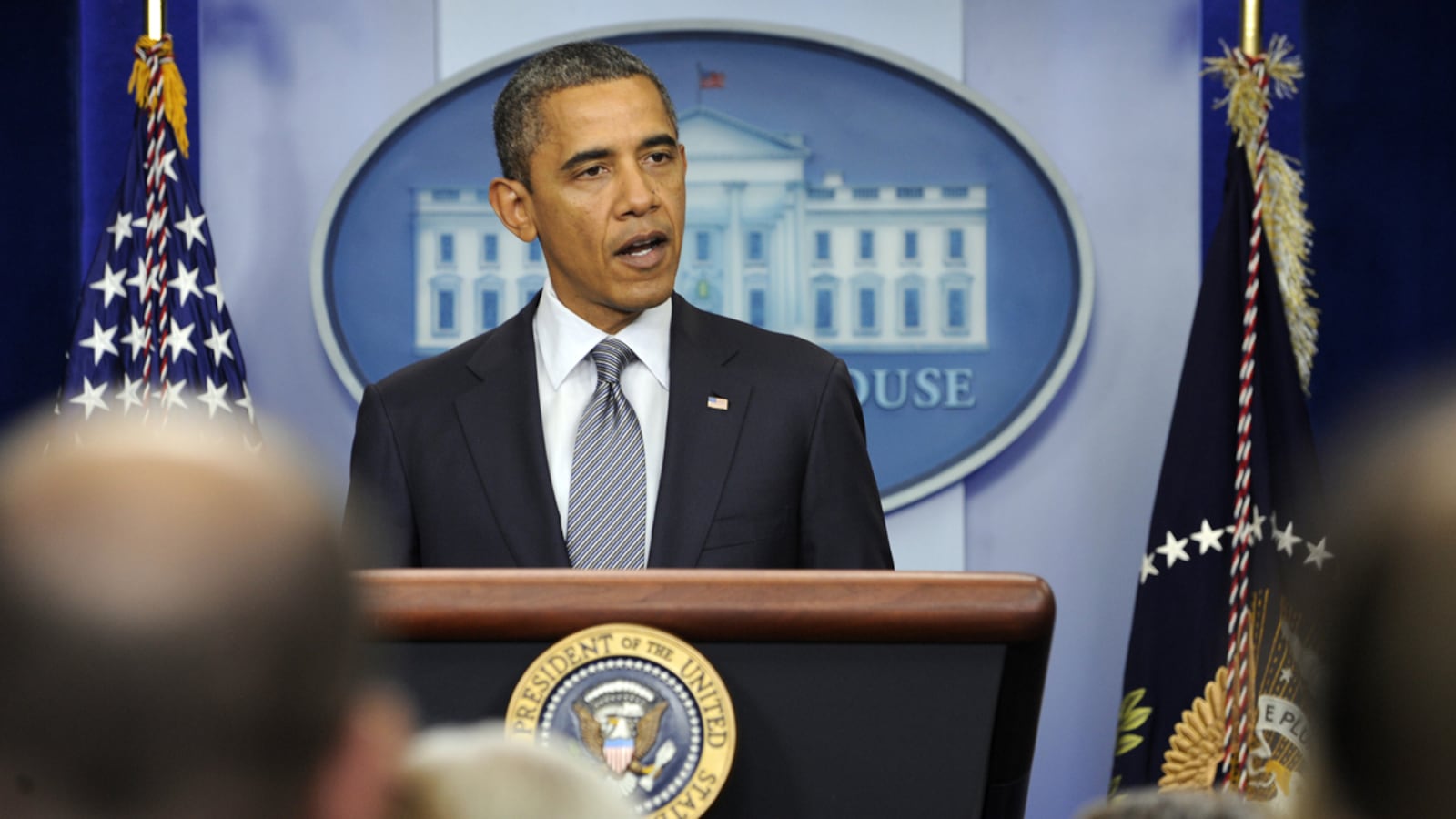President Obama went before the television cameras on Friday to announce what had largely been pre-ordained before he took office, that all U.S. troops would be leaving Iraq before the end of the calendar year.
It was in the final months of George W. Bush’s presidency that the United States negotiated an agreement to withdraw its troops from Iraq by the end of 2011.
In his first year as commander in chief, Obama promised to adhere to the timeline, even though many U.S. and Iraqi military leaders said some American forces should remain in the country. The U.S. position on the 2011 date changed this year, however. Defense Secretary Leon Panetta and his predecessor, Robert Gates, said publicly that some U.S. troops should remain in the country after the withdrawal. The conflict has claimed 4,200 American lives.
Proponents of remaining in Iraq argued that the smaller U.S. footprint would be needed to train the Iraqi military on new American equipment—and as a trip wire if sectarian tensions flared up again and threatened to plunge the country into another civil war.
The negotiations over the 2011 deadline continued into this month, but eventually the talks broke down after the Iraqi side would not extend legal immunity to U.S. soldiers and contractors in Iraq.

On Friday, Obama presented the loss at the negotiating table as a political victory. “As promised, the rest of our troops in Iraq will come home by the end of the year,” the president said. “After nearly nine years, America’s war in Iraq will be over.”
But the end of the war does not mean the end of the U.S. presence in Iraq. Indeed, speaking after the president’s brief announcement, Deputy National Security Adviser Denis McDonough acknowledged that the United States would continue to train Iraq’s military in the new weaponry that Obama has agreed to sell the government that emerged after U.S. troops toppled the regime of Saddam Hussein in 2003. Just this year, the Pentagon approved a sale of F-16s to Iraq’s air force.
Also remaining in Iraq will be military contractors who currently protect American diplomatic missions in Iraq, such as the U.S. Embassy in Baghdad and the consulate in Irbil.
“As part of a new agreement there will be Americans in Iraq training and assisting the Iraqi armed forces,” Qubad Talabani, the Kurdistan regional government representative in Washington and the son of Iraq’s president, told The Daily Beast. “These Americans will not be combat troops but they will be U.S. soldiers.”
The president, perhaps with one eye on his reelection bid, did not mention the fine print as he declared an end to the conflict he had opposed even before winning election to the Senate, and which helped him win the presidency in 2008.
Republican reaction was swift. “I remain concerned that this full withdrawal of U.S. forces will make that road tougher than it needs to be,” Rep. Howard “Buck” McKeon, chairman of the House Armed Services Committee, said in a statement. “Multiple experts have testified before my committee that the Iraqis still lack important capacities in their ability to maintain their internal stability and territorial integrity. These shortcomings could reverse the decade of hard work and sacrifice both countries have endured to build a free Iraq.”
As the United States draws down, the massive amounts of military equipment, such as predator drones and other intelligence sensors used in the war, will be positioned in nearby Turkey, according to senior administration officials.
At the press conference, McDonough answered some critics who said the withdrawal could jeopardize the progress the United States has made since 2007 by saying there was a 15-fold decrease in violent attacks in the last three years. He added that “every study and assessment we’ve sought” showed the Iraqi military was up to the task of defending the country.





